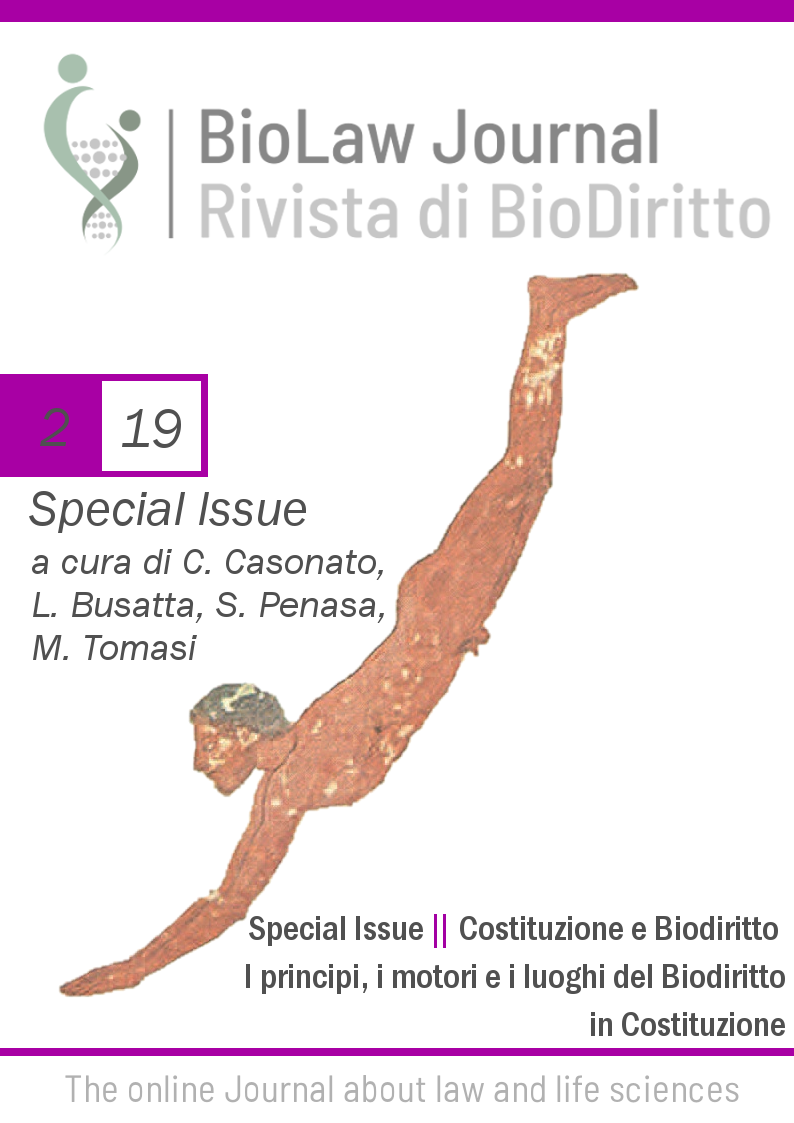Il contributo della Corte costituzionale allo sviluppo del biodiritto
DOI:
https://doi.org/10.15168/2284-4503-467Parole chiave:
Constitutional Court, biolaw, cognitive relationality, interpretative relationality, institutional relationalityAbstract
This paper starts from the assumption that biolaw is naturally a constitutional topic because it implies choices strongly intertwined with the set of fundamental values, protected against political majorities, that define the underlying “core” of our constitutional system. In this frame, the analysis of constitutional case-law about bio-juridical issues is organized around three main jurisprudential figures: those of “cognitive relationality,” “interpretative relationality,” and “institutional relationality.” The analysis of the selected case-law shows that the tension between constitutional principles and bio-juridical issues remains unavoidable and, indeed, the tension itself is the real engine of the development of biolaw in the system; therefore, rather than aiming to draw boundaries in the relations between law, science, constitutional principles and culture, the Constitutional Court seems to be looking for a point of dynamic equilibrium, one that could be defined as a “relational equilibrium.” In this perspective, the Court is not only facing the new constitutional challenges emerging from the interaction between life and technology but, in a broader view, it is seeking to outline a path for the future of democratic constitutionalism, showing how ethical pluralism and constitutional protection of rights can coexist.





